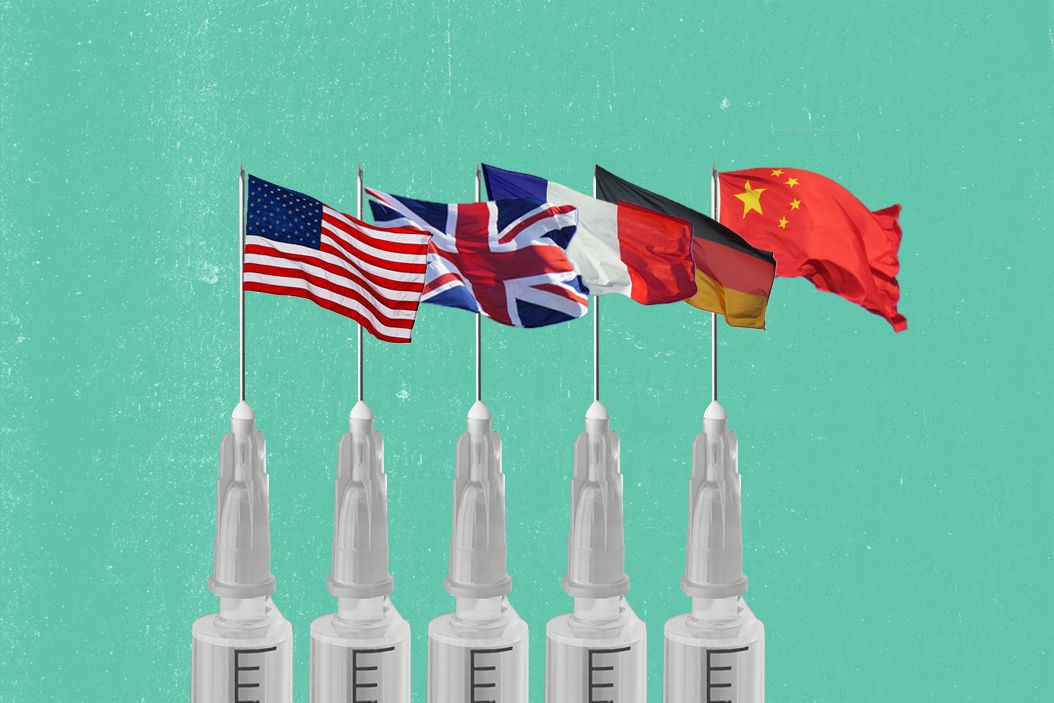May 20, 2020
As the novel coronavirus burns its way around the world, the race for a vaccine is now well underway. More than 100 Covid-19 vaccines are now in some stage of research, and there are eight candidate vaccines already in clinical evaluation, according to the World Health Organization.
Of those eight, four come from China, two from the US, one is a collaboration of companies in Germany, China, and the US, and another is the product of a partnership between Britain's Oxford University and AstraZeneca. Companies in Canada, France, Germany, Israel, Australia, and Switzerland may not be far behind.
Later this year or sometime in 2021, there's a good chance we'll see a COVID vaccine successfully produced— in limited quantities. Someone will be first in line. Others who want to be vaccinated will have to wait, possibly for years, as more vaccine is manufactured, and distribution gets up to speed.
So...there's a major political, epidemiological, and even moral question ahead: Who should get vaccinated first?
Here are a few ways to answer that question.
The highest bidder. It's not cheap to develop and produce vaccines. If this vaccine goes first to governments or individuals who pay the most for it, the large profits can then be reinvested to produce more vaccine for more people more quickly. In this case, efficiency can save many more lives.
Citizens of the country where the vaccine was made. If you're French, and a French company develops the vaccine first, shouldn't French citizens benefit first? Why should a French vaccine go first to save Americans, Italians, Russians, Indonesians, Nigerians, or Brazilians?
Front-line workers in the country where the vaccine was developed. Keep the vaccine in-country to save the lives of our compatriots but give it to front-line health-care workers first. More lives will be saved as hospitals become safer. And let's reward their courage.
A small number of front-line workers in every country where COVID is present. Risk and need, rather than borders, should decide who benefits. All human beings are at risk, and the person doing life-saving work under life-threatening conditions across the border is a better choice than the healthy person inside our country.
A larger number of front-line workers, but only in the hardest-hit countries. That way we reach those fighting the biggest fires fastest.
Your Signal authors? No, we're not saving lives. But we're very nice people. Don't forget about us!
Bonus question: Who gets to decide this question? Should the decision on first dibs be made by the CEO of the company that gets there first? Or the government of the country where that company pays taxes? The World Health Organization? A vote of the United Nations General Assembly? Someone else?
Which option would you choose? In the end, much depends on whether we believe a vaccine for this virus should be considered a commodity or a public good. Our answer to THAT will determine how we define fairness in this case.
This may seem like an abstract question. But it's coming. Hopefully soon.
More For You
World Central Kitchen staff hand out free soup in a neighbourhood that experiences electricity and heating outages following recent Russian attacks on Ukraine’s civilian infrastructure during subzero temperatures in Kyiv, Ukraine February 3, 2026.
REUTERS/Thomas Peter
1,170: The number of high-rise buildings in Kyiv that were left without heating following a barrage of Russian attacks last night on Ukraine’s capital and its energy facilities, per Kyiv Mayor Vitali Klitschko.
Most Popular
What We’re Watching: US critical minerals summit, Rafah crossing reopens, Border violence in Pakistan
Feb 02, 2026
U.S. President Donald Trump and Japanese Prime Minister Sanae Takaichi hold up signed documents regarding securing the supply of critical minerals and rare earths, at a bilateral meeting at Akasaka Palace in Tokyo, Japan, October 28, 2025.
REUTERS/Evelyn Hockstein
Representatives from the European Union, United Kingdom, Japan, and others will meet in Washington this week to discuss a strategic alliance on critical minerals.
Hard numbers: Large protests in Czechia, UAE-linked firm has large stake in the president’s company, & More
Feb 02, 2026
People take part in a rally in support of Czech President Petr Pavel, organised by Million Moments for Democracy group in reaction to dispute between President Pavel and Czech Foreign Minister and Motorists chair Petr Macinka, in Prague, Czech Republic, February 1, 2026.
REUTERS/Eva Korinkova
80,000: The number of people estimated to be in the streets of Czechia on Sunday to show their support for President Petr Pavel after he blocked the nomination of an environmental minister who performed the Nazi salute and posted Nazi memorabilia.
US President Donald Trump and musician Nicki Minaj hold hands onstage at the US Treasury Department's Trump Accounts Summit, in Washington, D.C., USA, on January 28, 2026.
REUTERS/Kevin Lamarque
The US has started handing $1,000 to the bank accounts of newborn babies. But can policies like this one help boost sagging birthrates in advanced democracies?
© 2025 GZERO Media. All Rights Reserved | A Eurasia Group media company.
